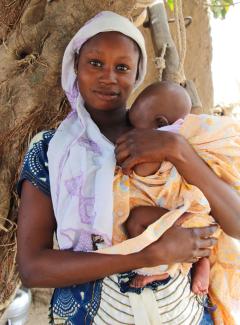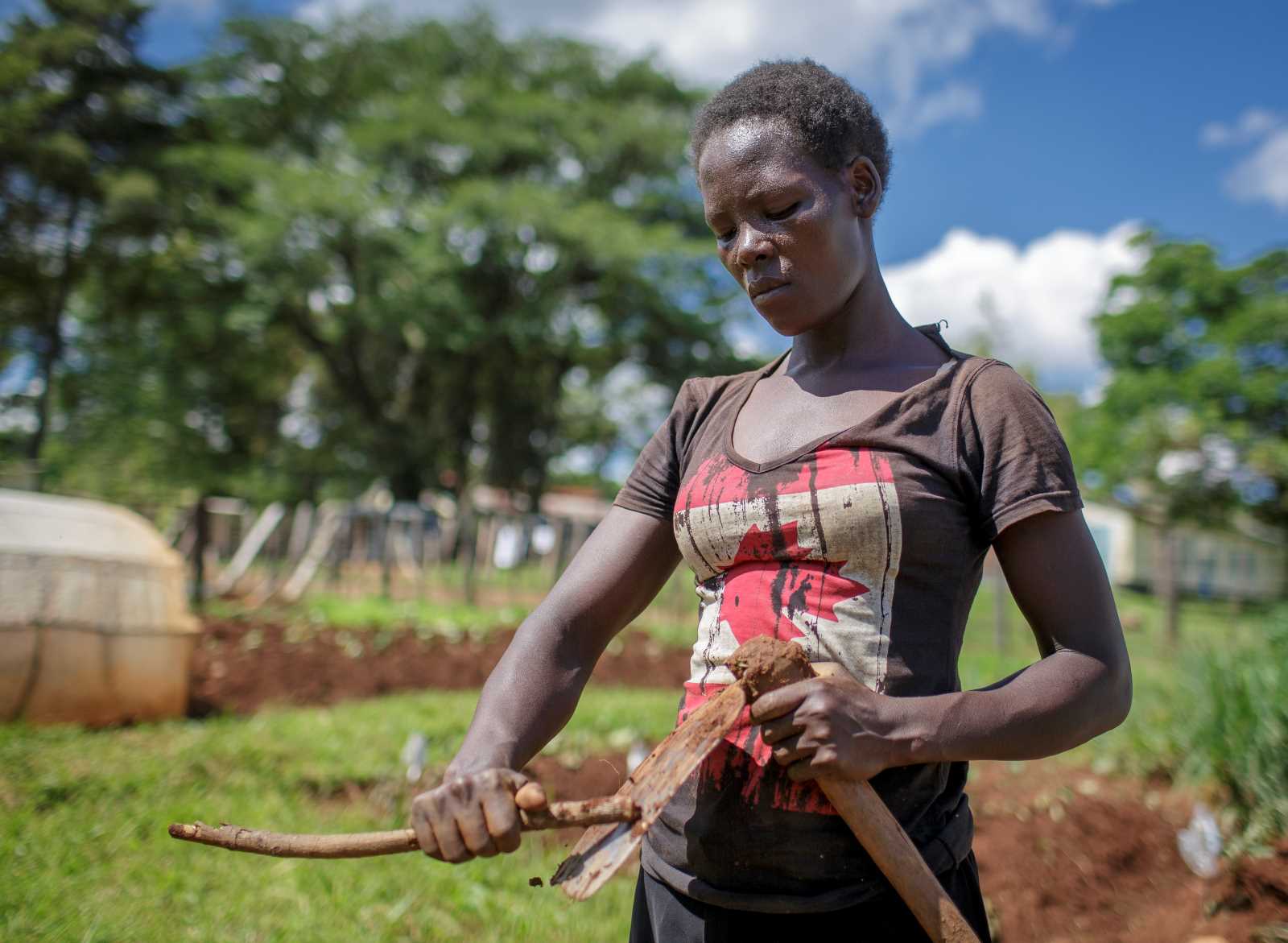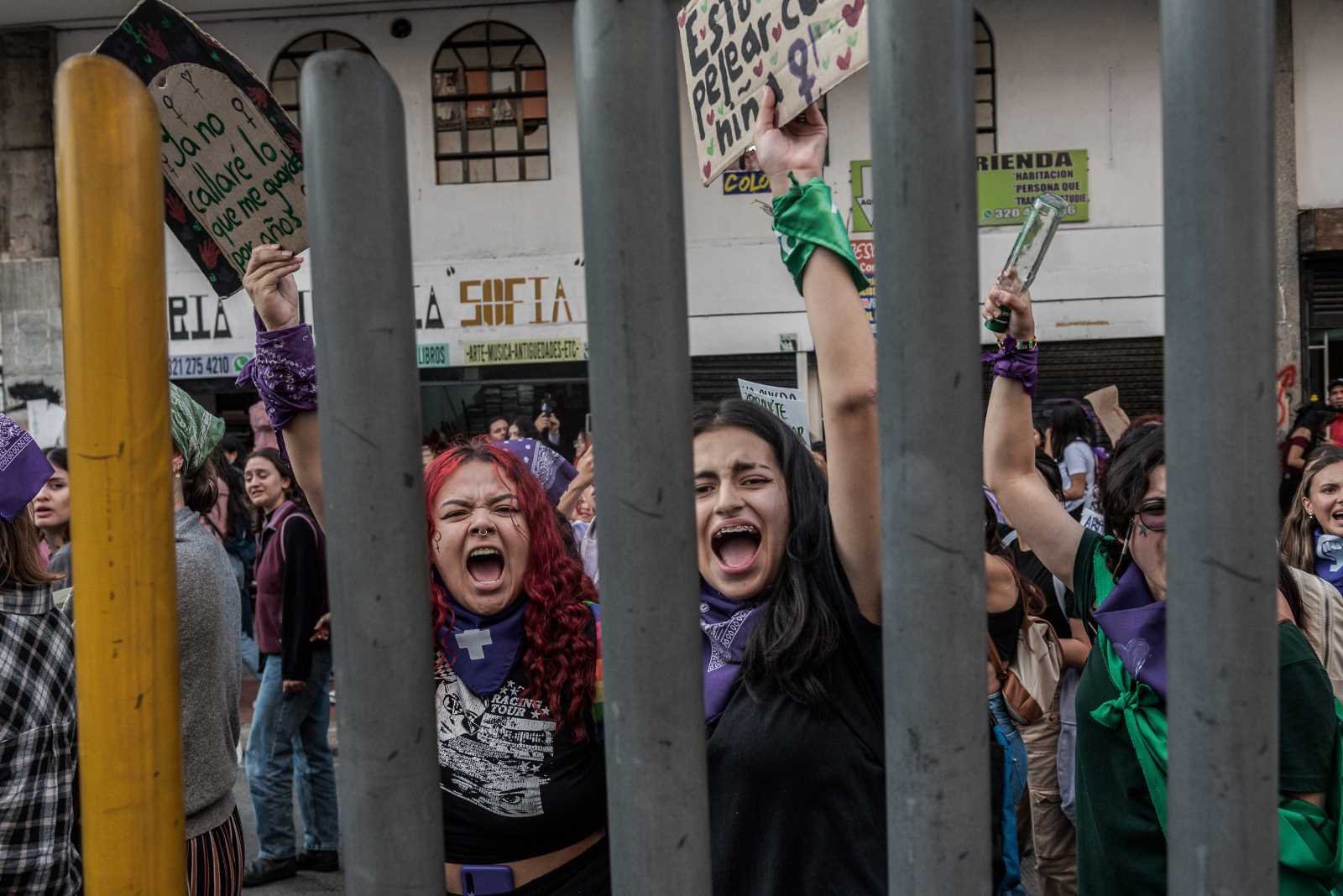Bodily autonomy
Women’s rights are human rights

Just over half of women and girls in middle- and low-income countries have the right to decide for themselves whether they have sex, use contraception or seek medical care. In some sub-Saharan countries, including Mali, Niger and Senegal, the figure is even below 10 %. These and other findings are included in the latest UNFPA State of the World Population Report.
The reasons that so many women are deprived of the right to decide for themselves are seen to reside in patriarchal societies and norms. They allow men, as head of the family, to subjugate women. Patriarchal practices include forced marriage, child marriage, dowry, widow inheritance or marrying rape victims to their rapist. Women are thus reduced to victims and even become tradable commodities. UNFPA also mentions female genital mutilation as part of an overarching patriarchal order designed to control sexual and reproductive rights.
UNFPA points out that the situation for many women and girls is even worse in crises like the current Covid-19 pandemic. When schools are closed, girls are at greater risk of sexual violence. Because of lockdown restrictions and austerity measures in countries with high levels of debt, many sexual and reproductive health services are not delivered. In countries such as Ethiopia, Kenya, Nigeria and Sudan, where marriage is seen as a way of protecting girls from the negative economic consequences of the pandemic, female genital mutilation is being performed increasingly to ensure premarital virginity.
The rights to bodily autonomy and integrity are recognised in the Universal Declaration of Human Rights. Many countries have laws to protect women and children. Nonetheless, women and girls are denied their rights. To some extent, plural legal systems are to blame. They let traditional and modern norms coexist in spite of their incompatibility.
Securing bodily autonomy and equality for women requires changes in norms and behaviour, the report says. Men need to be brought on board. They have to reject outdated patterns of privilege and dominance. Moreover, they must do their fair share of unpaid care work. At present, this burden rests on women and girls, denying them education and equal opportunities. UNFPA wants law enforcement to:
- take account of existing laws,
- uphold women’s rights and
- question their own biases.
UNFPA also states that there are some positive trends. In Rwanda and Uganda, for example, the report notes an increase in the percentage of women able to make autonomous decisions about health, contraception and sex. In Uganda, the upturn is a significant 12.3 %. However, a great deal more progress is needed to achieve gender equality, the UN’s fifth Sustainable Development Goal (SDG). UNFPA therefore calls for:
- an end to impunity for sexualised violence (from single violations to mass rape as a weapon of war),
- compulsory comprehensive sexuality education in schools,
- more progress on equal opportunities for high-quality education and decent work,
- promotion of gender-sensitive attitudes among men and boys,
- an end to discrimination against women in civil services, legislatures and leadership positions,
- affordable quality health care and affordable access to services such as child- and eldercare
- support and funding for women’s groups and movements.
UNFPA also sees a duty for international development policy makers and humanitarian aid. In 2018, only four percent of the total development budget of the 30 largest donor countries was deployed to support programmes for gender equality and women’s empowerment. That is not enough.
Link
UNFPA, 2021: My body is my own. Claiming the right to autonomy and self-determination.
https://www.unfpa.org/sites/default/files/pub-pdf/SoWP2021_Report_-_EN_web.3.21_0.pdf
Dagmar Wolf is the editorial assistant at D+C Development and Cooperation / E+Z Entwicklung und Zusammenarbeit.
euz.editor@dandc.eu











